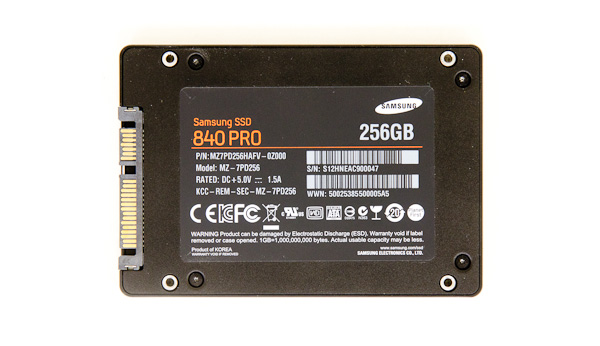Samsung is the first manufacturer to our knowledge to use TLC chips, in this case in their new 840 series. It means that the cost for the flash memory is potentially 30 percent lower. Hopefully this will eventually be reflected by consumer prices as well. It's possible that Samsung is saving that for when for example Crucial starts a new price battle.
When you look at performance, you can see that in the real-world benchmark PCMark 7 the Samsung 840 actually isn't faster than the model it is replacing, the Samsung 830. While there's nothing wrong with the performance, it does mean that most other recent SSDs are faster. With the synthetic benchmarks the 840 series is fast with random access, but very slow with sequential reading. If you frequently work with very large files, then the 840 series is not the best option.
We would like to know actual market prices before making a conclusion. Judging from the estimated recommended prices, the 840 series is quite a bit more expensive than the 830 series and many other popular SSDs.
It makes it difficult to position the new 840 series. It's not an entry-level product in terms of price, if you're looking for something affordable you're still better off with the Samsung 830. The 840 also isn't a high-end SSD, models such the Plextor M5 Pro, Corsair Neutron GTX and Samsung 840 Pro are much faster and don't have the potential disadvantage of the TLC chips during intensive use. It's not mid-range either, SSDs like the Corsair Neutron 240 GB or the OCZ Vertex 4 256 GB are both faster and cheaper. In other words, the 840 series will become interesting only when the price goes down quite a bit, lower than the current level of the 830.














